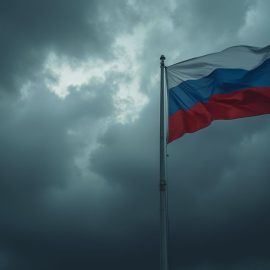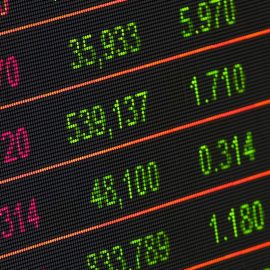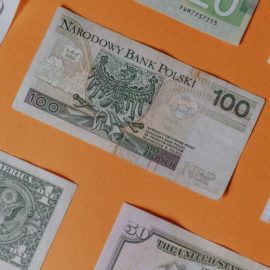

This article is an excerpt from the Shortform book guide to "The Creature from Jekyll Island" by G. Edward Griffin. Shortform has the world's best summaries and analyses of books you should be reading.
Like this article? Sign up for a free trial here.
Is the Federal Reserve responsible for inflation? Is inflation essentially a tax?
Milton Friedman once said that inflation is taxation without legislation. Edward Griffin agrees. He asserts that the Federal Reserve is responsible for inflation, and he’s concerned that inflation constitutes an unfair, hidden tax whereby the American people pay for the government’s expenditures without realizing it.
Read more to understand Griffin’s argument.
How Inflation Is Taxation
If inflation is taxation without legislation, how does it work? As Griffin explains, the Fed issues the fiat currency of the United States. Fiat currency, by definition, isn’t backed by gold or silver or any other tangible material. So, in principle, there’s no limit on how much currency the Fed can create.
In practice, the Fed creates as much additional currency as the government needs to finance its operations. However, as the supply of US dollars increases, the purchasing power of each dollar decreases, meaning American consumers can’t buy as much with their money—this is inflation. Thus, by creating more currency and causing inflation, the Fed takes purchasing power away from everyone else who owns US dollars.
Griffin concedes that not all deficit spending money comes from the Fed. When the government needs money, it borrows it by issuing bonds. Some of these bonds are bought by private parties, but, if Congress issues more bonds than people want to buy, the Fed is legally obligated to buy the rest. It does so by creating additional dollars.
(Shortform note: If you’re an investor looking to build a low-risk portfolio for dependable income, US treasury bonds may be exactly what you need. Treasury bonds provide predictable income from the interest that the government pays on the bonds, and carry very little risk, in contrast to stocks, which promise a higher rate of return, but carry a much greater risk of loss.)
| Is Taxation Through Inflation Unfair? Griffin asserts that inflation—which the Fed creates by issuing additional currency—constitutes an unfair tax. It’s easy to see how inflation can be considered a tax if the government is creating new dollars to fund projects while reducing the purchasing power of the money that was already in circulation, but how is this unfair? When money loses value, the loss in purchasing power is distributed among everyone who has money, and scales according to the amount of money they have, so those with the most money lose the most purchasing power and those with the least money lose the least. Some might argue that this makes it a very equitable tax. But other authors have developed the case for the unfairness of inflation more fully. In Economics in One Lesson, Henry Hazlitt explains that inflation doesn’t happen all at once, but rather ripples outward from the point where the government first spends the new money. This means different groups will be affected differently as inflation takes effect. When the government first buys goods and services with newly issued dollars, prices for those goods and services rise with the surge in demand. The businesses that sell them respond to the increased prices by expanding their operations, increasing the demand for labor and thus driving up wages in that particular line of business. Their employees eventually spend their increased incomes on other goods and services, increasing demand for most consumer goods and causing prices to rise. Increased prices again cause other suppliers to expand their operations, thereby raising wages—this time more generally—and the process repeats itself until the economy reaches a new equilibrium. In the process, a few people saw their wages rise before the price of consumer goods started to rise, and thus actually benefited from this cycle of inflation, at least in the short-term (in the long term, the reduction in the value of their savings might outweigh this benefit). But other people (likely the majority) didn’t see their wages rise until after they’d been hit with higher prices, so they took a loss on top of the loss of value of their savings. So the effects of inflation are not uniform but affect different people differently. Additionally, in Basic Economics, Thomas Sowell argues that inflation disproportionately affects the poor because wealthy people have the resources to insulate themselves from inflation. The rich rarely keep any significant portion of their wealth in cash. Instead, they invest it in stocks, real estate, or other assets which will hold their value, rising in price as inflation occurs. But the poor generally can’t afford to invest in these kinds of assets and thus keep what little money they have in cash, which loses value as inflation progresses. So the poor end up losing a greater percentage of their purchasing power due to inflation than the rich do. These principles—namely that in the short term, some people benefit from inflation while others lose out, and that in the long term, the poor lose the most purchasing power to inflation, while the rich lose the least—tend to strengthen Griffin’s argument that inflation is an unfair tax. |

———End of Preview———
Like what you just read? Read the rest of the world's best book summary and analysis of G. Edward Griffin's "The Creature from Jekyll Island" at Shortform.
Here's what you'll find in our full The Creature from Jekyll Island summary:
- How the Federal Reserve System destabilizes the economy
- Why banks are encouraged to engage in fraudulent practices that harm the public
- How the Federal Reserve can be abolished






